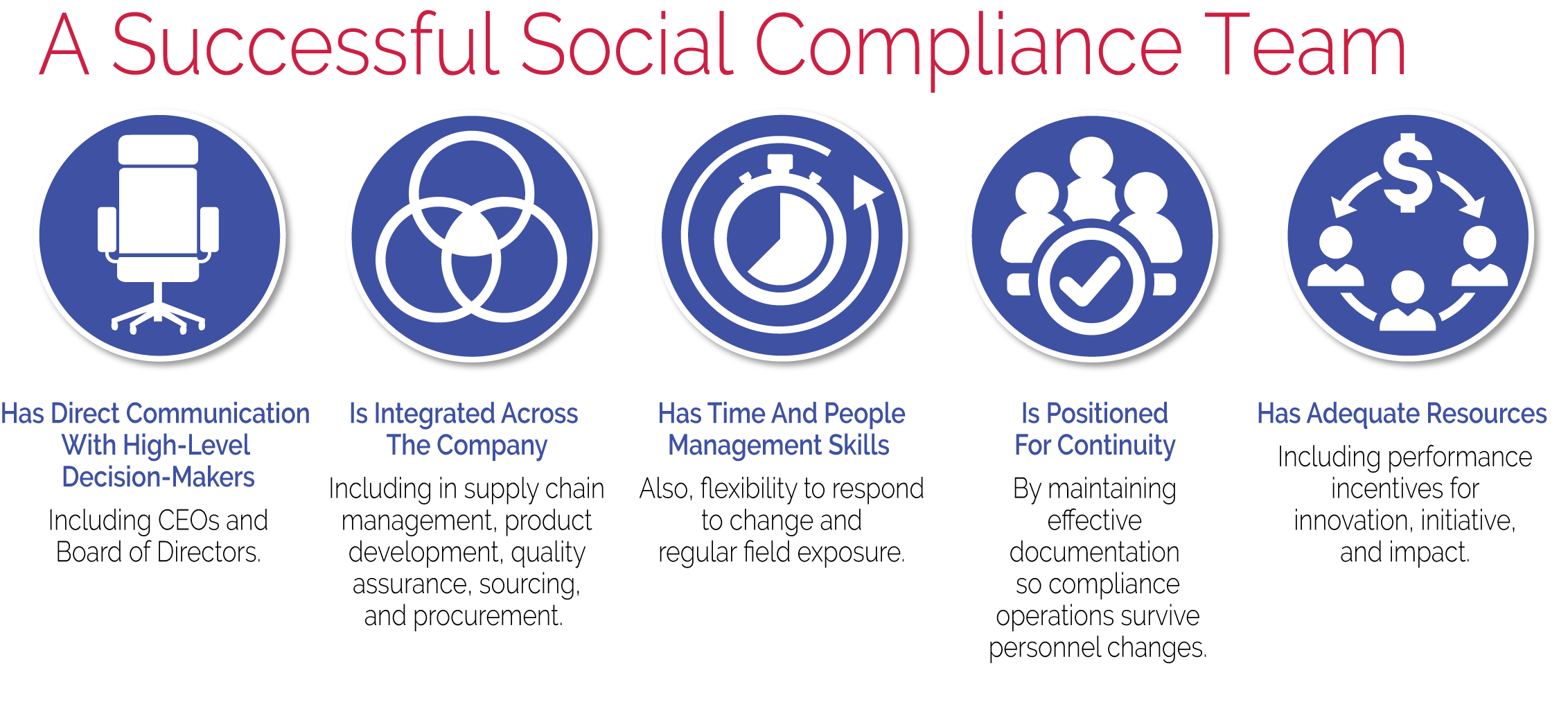Header Photo Credit: Hossam Al-Qullah/UNICEF/UN0455060
Companies have a variety of motivations for implementing social compliance systems, including:
Reputational Risk
One case of child labor can undo millions of dollars of publicity and branding overnight. Companies failing to prevent child labor, forced labor, and human trafficking risk tarnishing their reputations and eroding public trust.
Legal Liability
Human rights due diligence (HRDD) laws from Europe to Canada to Mexico are increasingly holding companies financially accountable for labor risks in their supply chains. Check out our Legal Compliance page to learn more.
Marketing and Competitiveness
Companies can set themselves apart by having a worker-driven social compliance system in place, or by excelling in certain areas of social or environmental compliance and marketing these strengths to their buyers, appropriate demographic groups, or other stakeholders. Large multinational corporations (MNCs) increasingly require strong worker-driven social compliance systems to be implemented before signing onto purchasing contracts with suppliers and other small- and medium-sized enterprises (SMEs).
Consumer, Civil Society and Shareholder Pressure
NGOs, trade unions, sustainable and responsible investor (SRI) bodies, and other civil society groups conduct investigations, publicize problems, and raise awareness about corporate conduct. Consumers are also demanding that goods be produced ethically and sustainably.
Loan Conditionality and Financial Due Diligence
Business entities receiving loans from the U.S. government’s International Development Finance Corporation (DFC) must adhere to specific social and environmental standards in their operations and supply chains, including standards on child labor and forced labor. These standards require due diligence to identify problems and focused efforts to remedy them, which can be accomplished with a strong worker-driven social compliance system. In addition, in much of the world, financial institutions must adhere to anti-money laundering (AML) requirements to monitor and identify financial activities that potentially relate to criminal activities. Financial institutions disclose these activities as part of a suspicious transaction report to the relevant financial intelligence unit.
Improved Supply Chain Management
Implementing a worker-driven social compliance system requires that a company gain control over complex global supply chains, which can bring additional efficiencies and benefits to its operations. This requires planning, documentation, internal controls, training, communication with company employees, sound analysis of data, and other clearly defined policies and procedures.
Employee Recruitment and Retention
Worker-driven social compliance is also linked with improved personnel recruitment, engagement, and retention. A growing body of research shows that employees, particularly those just entering the workforce, increasingly prefer to work for companies that are socially and environmentally responsible, and many factor this element into future employment decisions.
Companies without worker-driven social compliance systems face serious business and personnel risks. Delayed wage payments, unaddressed grievances, and the hinderance of workers’ right to collectively organize can also adversely impact employee motivation and undermine workers’ fundamental principles and rights. Higher rates of employee turnover are closely linked with poor working conditions and discriminatory policies. As you will see in our Legal Compliance section, laws are increasingly encouraging companies to adopt worker centric social compliance policies.
Legal Compliance
Basics of a Social Compliance System
Businesses should adopt integrated worker-driven social compliance systems that include the following components:
Management Systems
A company should also have a worker-driven social compliance management team with management systems that are fully integrated into the business operations of the company. Key Performance Indicators (KPIs) can be developed for the management team to routinely check progress against those targets or indicators and address areas in which goals have not been met, and workers and workers’ organizations should have the opportunity to weigh in on crafting and monitoring those KPIs wherever possible. To develop robust KPIs, consider the following criteria for building a Successful Worker-Driven Social Compliance Team:
- Direct communication with high-level decision-makers and workers, including workers’ organizations and/or unions;
- Integration across the company;
- The team has time- and people-management skills, the flexibility to respond to change, and regular field exposure;
- The team is positioned for continuity; and
- The team has adequate resources.


Further Resources
- The International Organization for Standardization (ISO) has established a variety of standards for management systems, such as ISO 17021, ISO Guide 65, ISO 9001, and ISO 19011. These standards cover issues such as impartiality and confidentiality, documentation and record control, management reviews, personnel qualification criteria, audit procedures, and appeals and complaints; available from http://www.iso.org/iso/home.html.
- The International Finance Corporation’s Performance Standard 1 discusses the elements of effective Environmental and Social Management Systems (ESMS); available from https://www.ifc.org/wps/wcm/connect/topics_ext_content/ifc_external_corporate_site/sustainability-at-ifc/policies-standards/performance-standards/ps1.
- Responsible Business Alliance Code of Conduct v. 6.0 (2018); available from http://www.responsiblebusiness.org/media/docs/RBACodeofConduct6.0_English.pdf.
- Social Accountability International (SAI) offers a “Social Fingerprint” program focused on management systems development. By participating in the “Social Fingerprint Supply Chain Management Program,” companies can assess their progress in key social compliance performance areas and access online training to boost competencies; available from https://sa-intl.org/services/social-fingerprint/. Note: this is a fee-based publication service.
- The UN Human Rights Council's publication, Guiding Principles on Business and Human Rights: Implementing the United Nations "Protect, Respect, and Remedy" Framework, sets global standards for preventing and addressing the risk of adverse impacts on human rights involving business activity; available from https://www.ohchr.org/Documents/Publications/GuidingPrinciplesBusinessHR_EN.pdf.





